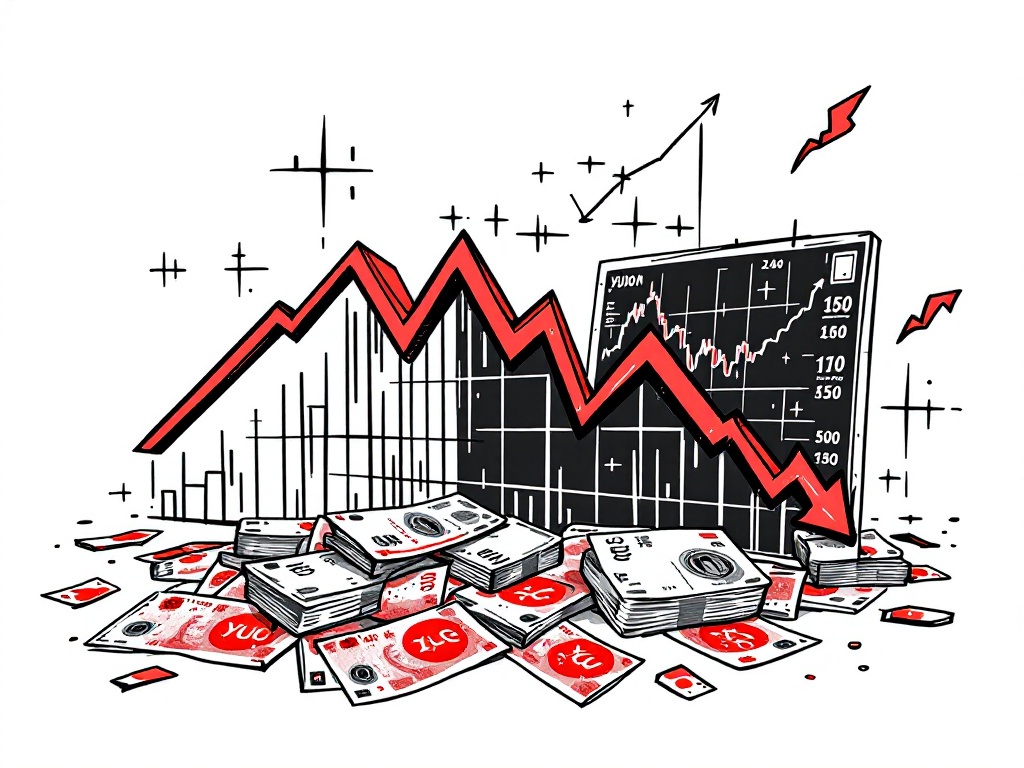China's Inflation Slows to Nine-Month Low, Sparking Deflation Concerns

Beijing, Thursday, 9 January 2025.
China’s consumer prices rose by just 0.1% in December 2024, the weakest in nine months, raising deflation fears amid weak consumer demand and declining wholesale prices.
Core Economic Indicators Paint Concerning Picture
China’s latest economic data reveals a concerning trend as consumer price inflation (CPI) slowed to 0.1% year-on-year in December 2024, down from 0.2% in November [1][3]. The producer price index (PPI) continued its downward trajectory, falling by 2.3% year-on-year, marking the 27th consecutive month of decline [1][2]. Core CPI, which excludes volatile food and energy prices, showed a slight improvement, rising 0.4% compared to 0.3% in November [1].
Consumer Spending and Food Prices Under Pressure
Food prices have shown particular weakness, declining by 0.6% month-on-month, with fresh vegetables and fruits falling by 2.4% and 1% respectively [1]. Pork prices, a significant component of Chinese consumer spending, dropped by 2.1% [1]. According to Shaun Rein, managing director of the China Market Research Group, ‘Deflation looms heavily over China’s economy in the run up to Chinese New Year as consumers look for deals when buying gifts for family members’ [1].
Market Response and Global Implications
The weak inflation data has already impacted Asian markets, with Hong Kong’s Hang Seng index falling 0.13% and mainland China’s CSI 300 decreasing 0.25% [2]. Economists at Barclays have revised their full-year inflation forecast downward to 0.4%, predicting continued low CPI and ongoing PPI deflation throughout 2025 [2]. The situation has broader implications for global markets, particularly as China emerged from a four-month period of deflation just last February [3].
Policy Measures and Future Outlook
Despite Beijing’s efforts to stimulate the economy through various measures, including interest rate cuts and increased lending since September 2024 [1], the impact remains limited. Louise Loo, lead economist at Oxford Economics, warns that current subsidies are merely ‘a quick fix’ targeting specific products without addressing broader consumption issues [1]. The International Monetary Fund projects China’s economic growth to slow to 4.5% in 2025, suggesting continued challenges ahead [3].